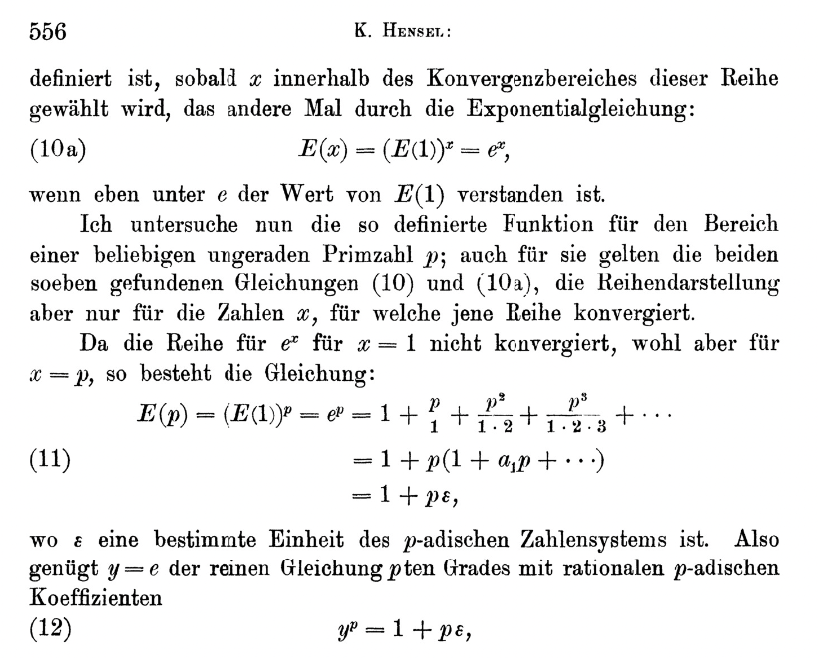Hensel’s Proof of the Transcendence of e
Published:
In 1905, Hensel provided the following proof about the transcendence of \(e\).

By the Taylor expansion of \(e^x\) at \(0\), and evaluating at \(x=p\), we get:
\[e^p = \sum_{n=0}^{\infty} \frac{p^n}{n!} = 1 + p \sum_{n=1}^{\infty} \frac{p^{n-1}}{n!},\]From this expansion, we see that \(e\) satisfies an equation of the form \(y^p = 1 + pu\), where \(u\) is a \(p\)-adic unit (Exercise).
But the polynomial \(y^p - (1 + pu)\) is irreducible over \(\mathbb{Q}_p\), the fraction field of \(\mathbb{Z}_p\):
writing \(y = 1 + z\) and expanding, we get
which is irreducible by the Eisenstein criterion.
Therefore \(e\) must have degree at least \(p\) over \(\mathbb{Q}_p\). Hence:
but this is true for any prime \(p\), so \(e\) must be transcendental.
Now, can you spot the flaw in this argument? If not, look for it on these notes by K. Conrad
The original reference is here
For a correct use of \(p\)-dic numbers in transcendence questions check this out
